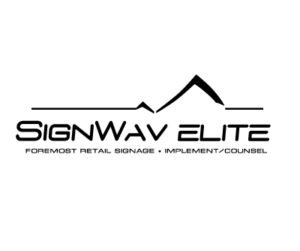Q&A with Brent Meyers, Vice President of Sales for Comdata
What are the key shifts commercial construction companies have made in the way payments are handled?
One of the interesting threads of the COVID-19 story is how it pushed businesses to adopt new technology. According to research by McKinsey, the pandemic likely sped up digital transformation by about 10 years. Industries like construction, which are generally more comfortable sticking to tried-and-true back-office processes, began searching to ways to complete the same work remotely. But even prior to the start of the pandemic, construction companies were beginning to look at alternatives—the pandemic simply encouraged the process to happen sooner than it may have otherwise.
How has the payment process for the construction industry’s back office changed due to working remotely?
COVID-19 has thrown construction industry back offices for a loop. The challenges include trying to get employees equipped to work securely from home; figuring out how to make manual processes work when everyone’s working outside the office; applying for and administering PPE loans to keep paying salaries for unionized workers, and more. It’s taken construction longer than some industries to find their way to a new normal. The pandemic forced them to digitize and automate sooner rather than later. How can you cut a check remotely? We’ve seen so many instances where the only time someone went into the office was to print the physical checks and put them on a signors desk only to text/email them and let them know to come in and sign. Talk about an inefficient process that can easily be replaced with an electronic process.
What payment trends do you foresee happening in the construction industry moving forward?
Check payments are losing their luster. For safety purposes, many companies still hesitate to send employees to the office to cut checks. But what we’re hearing even more is that their suppliers don’t want to receive checks, and they’re asking buyers to start making payments by automated clearing house (ACH). With suppliers adopting digital payments at a more significant rate, it feels like we’ve reached the tipping point and checks are becoming obsolete on a broader scale. Also, it’s becoming old-fashioned to think of buyers and suppliers—and AP and AR—as separate and independent organizations. Every AP team has a corresponding AR team. All companies are both buyers and suppliers. By looking at all connections between them, you start to see the huge social network of finance professionals behind the constant exchange of funds, POs, invoices, contracts, and other documents.
Can fraud be decreased by automating the payment process?
This may come as a surprise, but there has not been a significant increase in fraud attempts in the last few months. Our own internal tracking shows fraud counts matching the 2019 trends quite closely. There was a 50% spike in April 2020 (compared to April 2019) as personnel acclimated to remote forms of work, but the months since have less fraud instances. Physical security methods, while touted as a failsafe by some, do nothing to add to the safety of your business. For example, if your controller took home a folder of unsigned checks for the weekend and left them in the car while they stopped by the gym (a prime spot for car theft), your company information is physically at risk. The best and most surefire way to protect against email threats is to show your team how to identify them. Teach them to exercise suspicion towards unsolicited email communication and react accordingly:
- Do not click on a hyperlink unless you trust it.
- Do not open email attachments unless you trust the sender and are expecting the file (even trusted sender’s emails may be compromised).
- Do not provide your user credentials to anyone over email or phone.
- Lock your computer every time you step away.
Final thought?: Embracing digital technology in the construction industry is one way to work smarter, not harder.






























